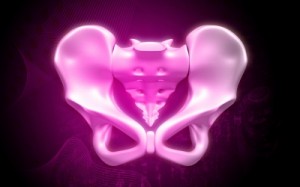Home >> My Pregnancy, Pregnancy Symptoms >> SPD (symphysis pubis dysfunction)
SPD (symphysis pubis dysfunction)

SPD can be an uncomfortable companion during your pregnancy.
Free image courtesy of FreeDigitalPhotos.net
SPD (Symphysis Pubis Dysfunction) or PPGP (Pregnancy-related Pelvic Girdle Pain) is severe pelvic pain which results from excess levels of relaxin softening your pelvic ligaments in preparation for labour and childbirth.
Pelvic pain is normal during pregnancy, however, SPD is a severe case which can make daily activities challenging. It usually begins anytime between the middle of your second trimester and just after birth. Fortunately, it is treatable, but usually involves limiting many of your daily activities.
SPD is usually diagnosed based on the symptoms you report to your doctor or midwife, who will then refer you to a physiotherapist. Your physiotherapist will determine if you are indeed suffering from SPD and in the event that you are suffering from SPD your physiotherapist will then prescribe a course of treatment.
Once you have given birth your SPD will gradually ease and it is best to continue physiotherapy treatment until your pelvis has fully returned back to normal. It is also quite normal for you to continue to feel pelvic pain as part of your monthly PMS symptoms, but it shouldn’t be unbearable.
Tags: destacado, pelvic pain, pregnancy, pregnancy hormones, pregnancy symptoms, pregnant, relaxin, SPD
Related post
Pain-free range of movement
Knowing your pain-free range of movement is important if you want to experience a natural childbirth without aggravating your SPD. How do I calculate my pain-free range of movement? Lie on your back and open your legs slowly until you feel pain. Once you feel pain, close them back slowly until you don’t feel pain […]
Read more...SPD and labour
SPD (Symphysis Pubis Dysfunction) or PPGP (Pregnancy-related Pelvic Girdle Pain) is severe pelvic pain which results from excess levels of relaxin softening your pelvic ligaments in preparation for labour and childbirth. Suffering from SPD can make childbirth a little more challenging, but the majority of mothers with SPD are still able to experience normal, […]
Read more...Coping with SPD
SPD (Symphysis Pubis Dysfunction) or PPGP (Pregnancy-related Pelvic Girdle Pain) is severe pelvic pain which results from excess levels of relaxin softening your pelvic ligaments in preparation for labour and childbirth. Fortunately, there are a lot of things you can do at home in addition to your professional treatment sessions to ease the pain caused […]
Read more...SPD Treatment
SPD (Symphysis Pubis Dysfunction) or PPGP (Pregnancy-related Pelvic Girdle Pain) is severe pelvic pain which results from excess levels of relaxin softening your pelvic ligaments in preparation for labour and childbirth. Treatment methods for SPD include: Physiotheraphy Exercise (as recommended by your physiotherapist) Acupuncture (by a qualified professional) Osteopathy and chiropractic treatment (by a […]
Read more...SPD risk factors
SPD (Symphysis Pubis Dysfunction) or PPGP (Pregnancy-related Pelvic Girdle Pain) is severe pelvic pain which results from excess levels of relaxin softening your pelvic ligaments in preparation for labour and childbirth. You have an increased risk of developing SPD if: You began menstruating before you were 11 years old. You’re overweight. You suffered from SPD […]
Read more...